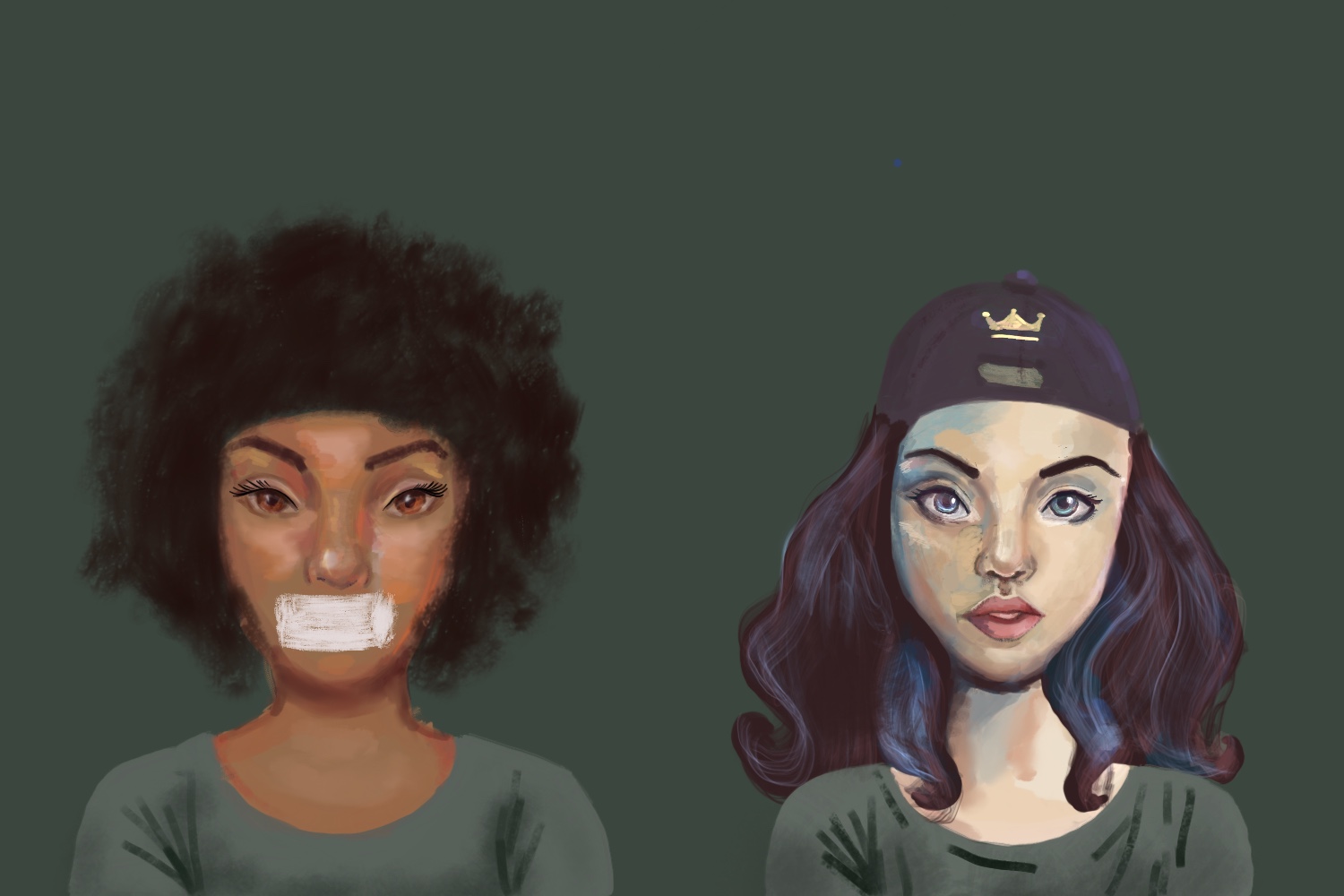The trend-chasing, fast fashion beast Urban Outfitters is no stranger to controversial headlines. From using tragedies such as the Holocaust and 1970s Kent State massacre as inspiration for graphic t-shirt designs to making light of alcohol and drug abuse to sell cheeky clothing and paraphernalia to their underage market, the retail clothing store continues to be tone deaf in a suspiciously cyclical manner.
So, it’s no wonder that I didn’t feel particularly comfortable seeing grunge tees plastered with the faces of black 90s and 2000s music icons such as Ice Cube, Tupac, Aaliyah and Notorious B.I.G sitting next to the vinyl display on my way up to the second floor. It felt like passing by the “ethnic” section in the hair care aisle, only this time non-people of color would be flocking to buy up the ethnic products in the name of sporting the latest in popular “urban” culture.
And please don’t tell me the shirt designs pay homage to those phenomenal musical trailblazers because Urban’s target market has no cultural connection and are likely too lazy to research the stories behind the faces on their $30 tee.
Faces that defined a generation. Faces that were plastered all over the news as thugs and criminals. Faces that caused riots. Faces that gave a voice to communities previously dismissed by the upper white class. Those same faces are being used for profit and marketed to the children of the people that called and treated them like criminals.
Upon doing some further research, it was odd to see there was no formal outcry from the black community at this seemingly blatant use of the black face for popularity and relevance. In previous instances regarding other culturally and socially insensitive controversy, official organizations were quick to hold Urban accountable.
In 2016, according to the National Indian Law Library, the Navajo Nation v. Urban Outfitters lawsuit took place where the Navajo Nation sued Urban Outfitters for a line of clothing they released that used the Navajo name. Because the Navajo people retain the rights to 100 active trademarks using the term Navajo, they accused Urban of being in violation of those rights, specifically in relation to 10 trademarks regarding the case.
In 2015, Abraham H. Foxman, national director of the Anti-Defamation League (ADL) and Holocaust survivor, advocated having Urban Outfitters stop production of a tapestry that was evocative of the gray and white concentration camp uniforms, decorated with pink triangles which were used during the Holocaust to identify homosexual prisoners. This was not the first time the ADL had to call out Urban for their misuse of Jewish imagery on their clothing, recalling a time they released a graphic tee with a symbol reminiscent to the Star of David.
So, the problem lies not in fear of going up against a retail giant and holding them accountable for their actions. In the grand scheme of things, the problem is hardly Urban’s fault at all. Whenever a brand, whether that be a clothing retailer or even a musician, wants to remain relevant in popular media and to their young audience, they integrate black culture into their image. A metaphysical black face of sorts.
This can be clearly seen in the shift of the pop music formula in the last ten years. Nearly every pop single released between 2010 and 2016 featured a star-studded, second verse rap feature. The music industry had finally acknowledged the power and influence of hip-hop as not only a music genre but a socially impactful element as well. In addition to a sonic shift, artists incorporated dances such as twerking and styles newly-christened “urban streetwear” into their repertoire that were previously viewed as “ratchet” or “ghetto.” This is where the term “culture vulture” comes into play.
Because this has become such a common practice and the lines have become so blurred, the urban section of graphic tees at Urban Outfitters is no more than an indistinguishable flick of paint in this Pollock of cultural appropriation.
To recall a statement from the Navajo Nation v. Urban Outfitters lawsuit, the case was essentially dismissed because “Defendants (Urban Outfitters) contend that Plaintiffs (Navajo Nation) have abandoned the ‘Navajo’ marks by failing to enforce their purported rights in them.” So, Urban argued that the term Navajo had been used so much and had become “generic” and therefore the Navajo Nation had forfeited their rights to the term.
Although there has been a recent move in the black community to keep brands and celebrities on their p’s and q’s, there are simply too many fronts to cover at all times in all areas. Like the excuse the Navajo faced, the claim proposes that black culture has been so ingrained and entwined in pop culture that it has become generic and lost its meaning, so the black community no longer has the right to it and tees like those found at Urban make it through the cracks.
Then, is a culturally conscious fashion industry a hopeless endeavor? Not at all. The empowering thing about the black community is just that— it’s a community. A community of voices ready to pull up the rug and sweep out what’s been swept under. I know I’m willing to do my part, starting with calling attention to the culture vulture collection of graphic tees on the Urban Outfitters staircase.
Written by Ka’Dia Dhatnubia
Graphic by Brianna Naughton

